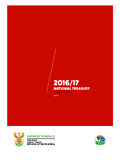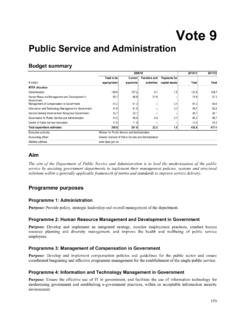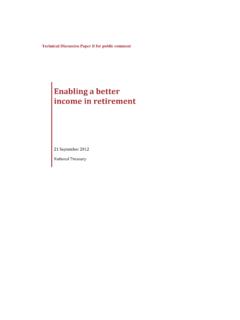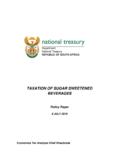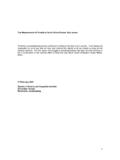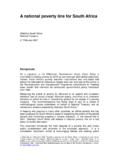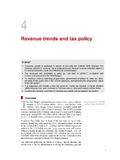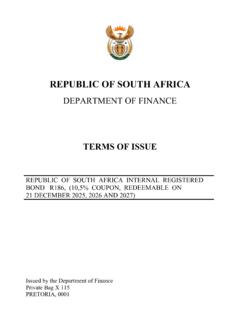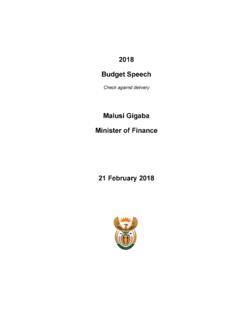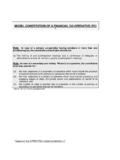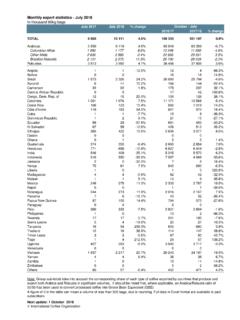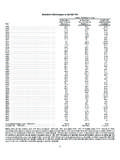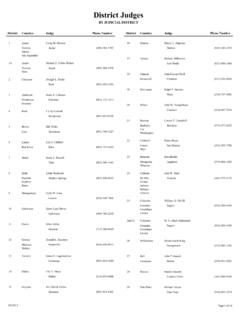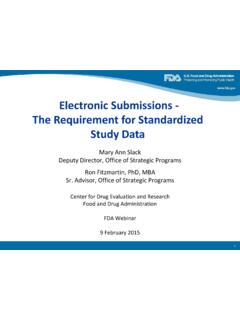Transcription of 2015 Budget Speech Nhlanhla Nene Minister of Finance 25 ...
1 MINISTRY: Finance . REPUBLIC OF SOUTH AFRICA. Private Bag X115, Pretoria, 0001 Tel: +27 12 323 8911 Fax: +27 12 323 3262. P O Box 29, Cape Town 8000 Tel +27 21 464 6100 Fax +27 21 461 2934. Website : , email : 2015 . Budget Speech Nhlanhla Nene Minister of Finance 25 february 2015 . 2015 Budget Speech ISBN: 978-0-621-43287-9. RP: 10/ 2015 . To obtain copies please contact: Communications Unit National Treasury Private Bag X115. Pretoria 0001. Tel: +27 12 315 5526. Fax: +27 12 315 5126. Budget documents are available at: ii Honourable Speaker . I have the honour to present the first Budget of our fifth democratic Parliament.
2 Members of the House, and fellow South Africans . Over the past twenty years we have built houses, delivered water and electricity, improved access to schools and health care. Yet there are people living in shacks, there are schools without sanitation, there are patients without care. We have made progress in dismantling apartheid divisions. Yet there are still fault-lines across our social landscape. We have agreed on a National Development Plan. But there is still hard work ahead in its implementation. Though we continue to register positive growth rates, many businesses have struggled to maintain profitability, unemployment remains high and government has had to adjust to slower revenue growth.
3 Today's Budget is constrained by the need to consolidate our public finances, in the context of slower growth and rising debt. And so we must intensify our efforts to address economic constraints, improve our growth performance, create work opportunities and broaden economic participation. We need to achieve these goals if our National Development Plan is to be realised. On the one hand, our development path is limited by the resource constraints of the current economic outlook. On the other hand, it seeks to lift these constraints by strengthening public institutions, supporting innovation and making markets work better and investing in infrastructure and our people.
4 The 2015 Budget is aimed at rebalancing fiscal policy to give greater impetus to investment, to support enterprise development, to promote agriculture and industry and to make our cities engines of growth. 1. 2015 Budget Speech Strategic priorities for growth and development As outlined by President Zuma in the State of the Nation Address on the 12 th of february , Cabinet has agreed on nine strategic priorities to be pursued this year, in partnership with the private sector and all stakeholders. They include: 1) Resolving the energy challenge, 2) Revitalising agriculture, 3) Adding value to our mineral wealth, 4) Enhancing the Industrial Policy Action Plan, 5) Encouraging private investment, 6) Reducing workplace conflict, 7) Unlocking the potential of small enterprises, 8) Infrastructure investment, and 9) Support for implementation of the National Development Plan through in-depth, results-driven processes, known as phakisa laboratories.
5 The first of these laboratories focused on the oceans economy, including off- shore oil and gas exploration and aquaculture opportunities. Already this has led to investment of billion in Saldanha Bay. Strategies for improving primary health clinics have also been developed through a phakisa process. The mining sector will be next. These processes draw widely on the talents and expertise of South Africans, from the public and private sectors, and the scientific and research community. In each of these areas, there are many programmes and interventions underway, and numerous stakeholders and institutions involved.
6 Members of the House will appreciate, however, that having a plan and a series of activities is not enough. Intensive effort has to go into the details of implementation, understanding the risks and opportunities of changing market conditions as well as identifying institutional and financial options. 2. 2015 Budget Speech There are many possible plans and priorities: the challenge of governance is to choose wisely between competing alternatives. The Budget process plays a role in clarifying these options, probing their costs and assessing implementation modalities.
7 It seeks to allocate resources systematically and fairly. This year, we received around 400 tips from fellow South Africans on the Budget . Quite rightly, there are two main areas of concern. 1) Many people have concerns about public service delivery. For example, Asif Jhatham advises that municipalities should follow SARS in adopting electronic payments systems. Marc de Chalain appeals for an improved work ethic and pride in a job well done in the public service. Mpumelelo Ncwadi suggests that youth-owned cooperatives should be supported to produce lettuce and herbs for local hospitals and schools.
8 2) And then there is advice on tax matters. Christopher Pappas suggests that fast foods should be subject to sin tax. Mandy Morris says it is time VAT was increased to 15 per cent. On the other hand, Thabile Wonci proposes that young professionals should be exempt from tax for at least one year of work. Fellow South Africans, I will return shortly to these tax questions. The Budget documents I table today are designed to make our Budget choices and their implications transparent. The processes which follow in this House, bringing medium term plans and programmes under the scrutiny of portfolio committees and subjecting Ministers and officials to Parliamentary accountability, are essential disciplines in the translation of plans into service delivery programmes.
9 And so in presenting this Budget to Members of the House, I am obliged to caution that it again comprises a weighty set of documents and explanatory papers. Members who feel that the burden of after-hours reading is excessive are referred to my predecessors, Minister Gordhan and former Minister Manuel, who oversaw the design of these instruments of accountability. Thankfully their advice to me is that it does not all have to be incorporated into the Budget Speech . Allow me therefore to recommend this year's Budget Review for the further attention of Members. It is somewhat differently structured from the past.
10 There is a new chapter on the financial position of public sector entities, and an annexure on progress in infrastructure spending. 3. 2015 Budget Speech Economic context I turn now to the economic context within which the Budget has been prepared. Global economic growth is expected to remain sluggish over the period ahead, rising from per cent in 2014 to 3 per cent this year. There is considerable variation in economic performances between countries and economic trends are likely to be volatile. In the United States, per cent growth is expected this year, but in Europe the outlook remains weak, and could still be destabilised by disagreements between debtor and creditor nations.
